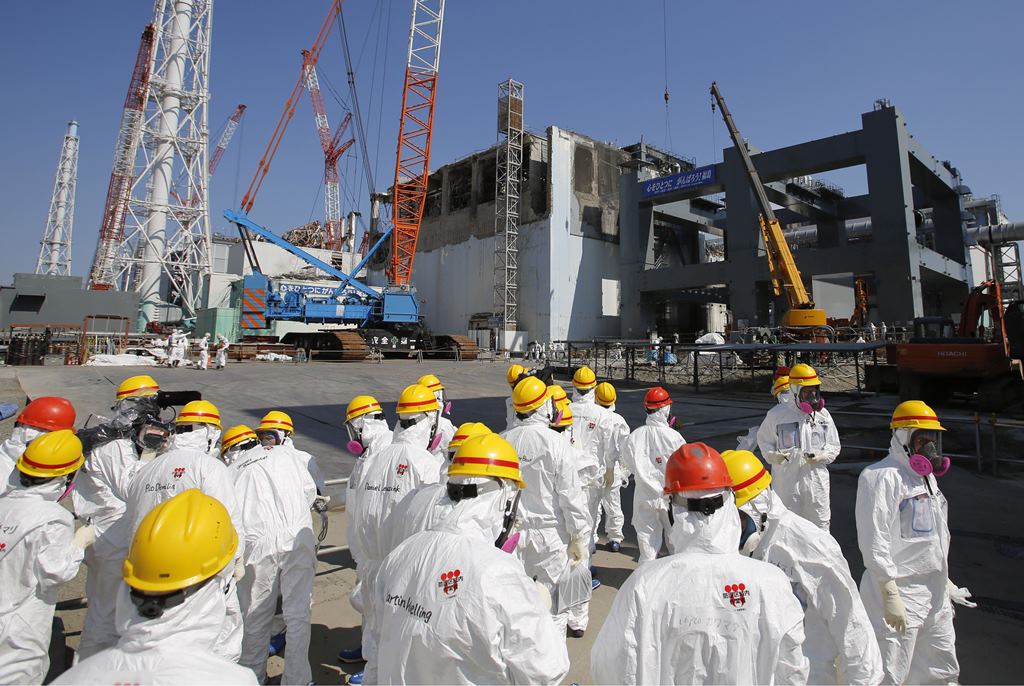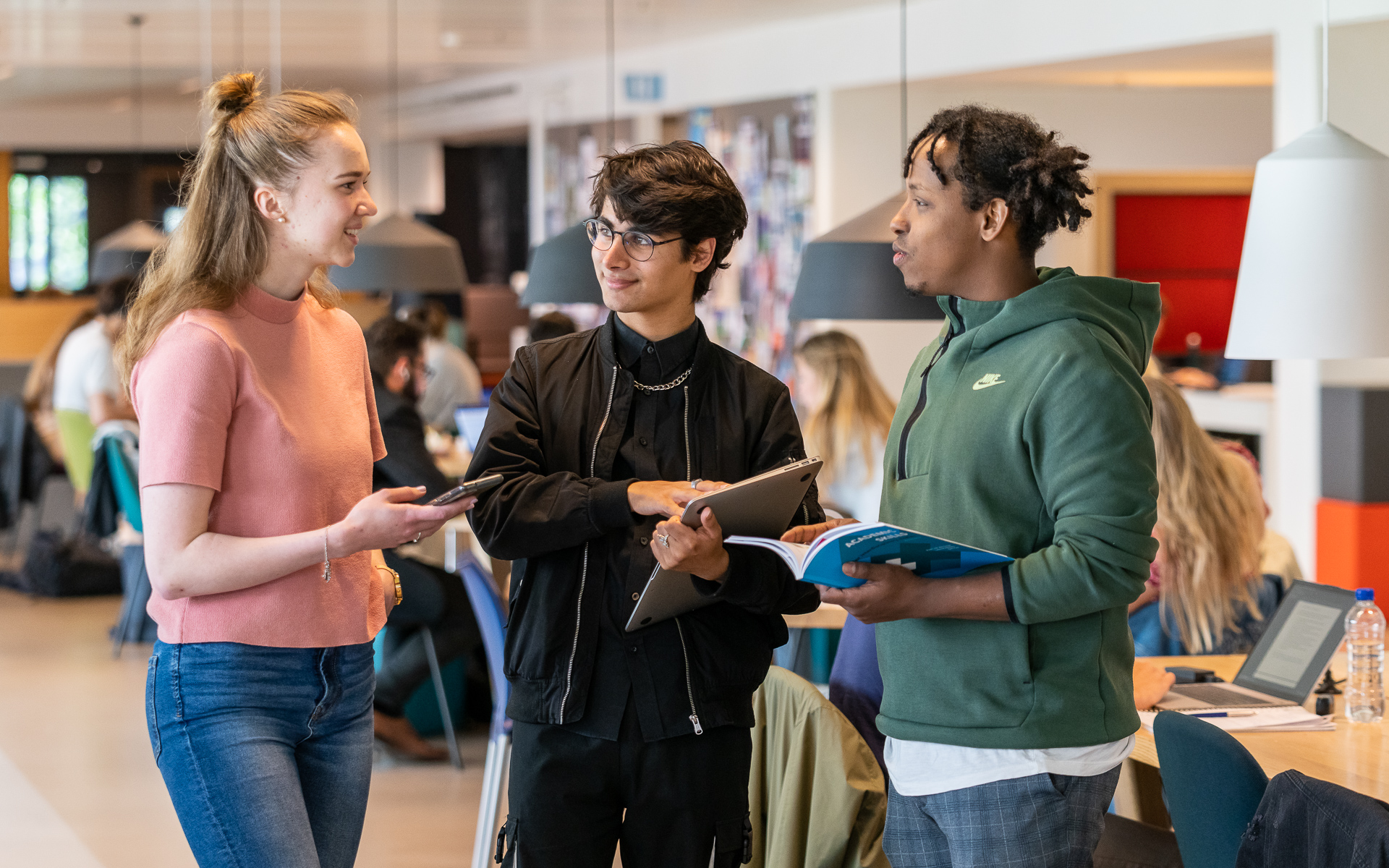Security Studies (BSc)
About the programme
As a student in Security Studies you are a socially engaged critical thinker eager to study real-life security cases in an academic setting. You focus not just on the broad context of these issues but also on the role of government, institutions and media.
In this bachelor programme you will also study various crises and crisis management. Crises are unforeseen situaties which require impactful decisions in times of stress and chaos. How do govenments and private actors work together to prevent, response to, and recover from crises such as natural disasters and pandemics? For example, in the course Case study: Fukushima, students will look into the Fukushima nuclear disaster that happened in 2011 in Japan and in the course Vital interests we will further discuss the SARS epidemic.
Mariya Sherawala
Second year student

“Security Studies has never been more relevant, which is why choosing this programme was one of my most exciting decisions. Its ‘Explore, Understand & Do’ approach combines disciplines like political science, psychology, economics, and history, broadening my perspective and helping me see connections I had never considered. My favourite course, Vital Interests, offered a fascinating insight into the priorities of states and the complexities of global governance. For anyone curious and ambitious about making sense of our complex world, this programme is the perfect choice.”
Emilia Berghuis
Third year student

"The Bachelor Security Studies is one of the most relevant programmes in today’s world. You only need to open the news to see the issues we discuss – from terrorism and organised crime to cybersecurity. Thanks to its interdisciplinary approach and inspiring guest lectures, Security Studies offers a profound understanding of these complex and pressing challenges. What I value most about the programme is the wide range of opportunities it offers. For example, I was able to go on exchange to Tokyo, Japan, where meeting new people and experiencing different perspectives broadened my understanding of global security and safety issues. Security Studies also places strong emphasis on developing professional skills. Regular presentations and group work have helped me grow in confidence and communication. I would highly recommend this programme to anyone eager to explore complex issues from multiple perspectives and contribute to real-world solutions."
Chiara Barbeschi
Alumna

"If modern global safety and security is a topic that intrigues you, then Security Studies is a bachelor programme that would suit you. What makes me enjoy this course is mostly the unique approach it takes; after learning about essential Security and safety concepts, the first year applies them to real-world situation through case studies. The case study on Syria was my favorite as it is an on-going issue.
The discussions in the Course Labs stimulated critical thinking and helped us reflect on the functioning of the world through modern security issues. This interdisciplinary course includes the following courses in second year; Cybersecurity, Vital Interests, War and Peace, Terrorism and Cyberterrorism, Economics of Security, that will help you find the security field that fits your interests."
Programme overview
The first year
After a broad introduction to security and safety in modern society, you gain insight into different vulnerabilities and threats, the actors involved, and approaches to safety and security issues. You study two complex real life cases with local, national, regional and global dimensions: Syria, and Fukushima. You begin to acquire and improve such academic and professional skills such as: critical thinking, writing, communication, research, teamwork, intercultural skills, organisational & leadership skills.
During the Skills Labs you develop both academic and professional skills in small groups of about 15 international students. Guided by a tutor you learn to analyse texts, construct arguments, reflect on your work, give and receive feedback and practice leadership and teamwork skills.
The second year
In your second year you learn about the strategies necessary to protect the vital interests in society and to ensure stability, welfare and prosperity. As part of this process, you will study three security and safety challenges: Terrorism & Counter-terrorism, Cyber Threats and War & Peace Building. You will also explore the underlying themes of Law and Security and Economics of Security.
Each security and safety challenge and underlying theme in this year is taught through plenary lectures and Course Labs. These Course Labs are connected to the subjects and aim to provide deeper understanding of the lectures in an interactive way.
The third year
You have freedom to tailor your studies to your goals in year three, enabling you to qualify for a specialised master’s programme, or to prepare for entering the labour market. You have the opportunity to study abroad; to do an internship; to choose a minor programme at Leiden or elsewhere, and you can choose to do electives, either at Leiden University or another university in the Netherlands. Whether you want to qualify for a specialised Master’s programme or go into the labour market, use your third year strategically.
You conclude the programme by writing an individual thesis.
Detailed programme
Below you can find an overview of the curriculum. For a detailed description of the courses, check the Prospectus. Please note that this guide applies to the current academic year, the curriculum for next year may differ slightly.

Opleidingspresentatie
Due to the selected cookie settings, we cannot show this video here.
Watch the video on the original website or-

Develop your academic and professional skills -

Study real-life security and safety cases -

Study in an international community

